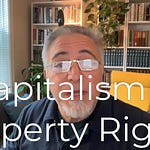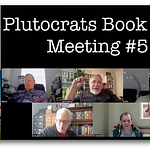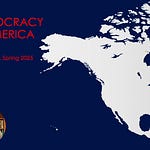When Tracy Gustilo and I were talking the other day, she asked me a compound question that included what she called "a more basic question, what's the difference between history and historiography?" (this will appear in part 2 of our conversation). Now I'm pretty sure Tracy has a pretty good idea of the difference, so I imagine she wanted to direct the discussion toward that distinction. Unfortunately, I sort-of veered off course and didn't address the question completely. So I thought I'd say a bit more about it, because I do think it's interesting and relevant to what we discussed and more generally, to my project here.
I said some things in that conversation about how I think History is different from Science. The main thing is that History deals entirely in events that happened only once, in the real world. That means there's no way anything can be replicated, the way science experiments are in laboratories. Recently, psychology has faced a bit of a crisis when people discovered that several results that have been taken seriously for years have been impossible to replicate in subsequent studies. This casts a huge shadow over the credibility of the findings derived from those experiments.
History has never had this problem because it has never had this advantage. That's why the joke is funny, about History not repeating itself, but rhyming. Everybody intuitively understands that the difference between scientific proofs and historical insights is one of kind rather than degree. I'll have more to say in a future post about "truth" claims and my beef with sociology and anthropology, but back to historiography.
Another important element of History is narrative. History isn't the past. It's stories we tell about the past. And those stories all have a relationship not only with the past (which is infinite) but with things others have said about it. Stories they've told; interpretations; claims of causality and significance. So a big part of training to become a historian involves learning to find evidence and work in archives, to craft stories about the past. But an equally important part is learning the stories that have already been told and the claims and interpretations that have been made. This study of what other historians have already done is what we generally call Historiography, which obviously means something like "the writing of history".
There's a guild-like, initiatory element to doing Historiography. When I was a PhD student, I was expected to choose a major field (mine was global Environmental History) and two minor fields (mine were US Social and Cultural History in the "long" 19th century), and then become an expert at everything that has been written in these fields. After months of reading and discussing with field advisors, I took three Comprehensive Exams (Comps) in which I wrote long essays on questions posed by these advisors. Then there was an oral discussion where I demonstrated my ability to describe the work others had done and defended my interpretations.
So in a sense, the historiographical work I did in each field involved creating a history of the history. A story about all the stories that had been told and how they had changed over time. There was a real feeling that I was entering into a conversation with these scholars that had come before me. This reminds me a lot of what Hutchins and Adler were hoping people would do with the foundational texts of western culture, in what they called the Great Conversation -- and I suspect that's why Tracy wanted me to expand on the idea.
So I riffed a bit in the conversation, about these different levels of primary sources through what I called tertiary or even quaternary. All of these participate in that dialogue we call historiography, I think. Primary sources being part of historiography might seem counterintuitive, because they typically consist of documents written by people experiencing the actual events they describe. There are different levels of sincerity and self-consciousness in these primary documents, though; and you need to read them critically. There's also a question of curation. Again, there are an infinite number of data-points about the past. How we choose and which ones we choose is hugely important.
Secondary sources are narratives and interpretations written by historians, so that's an obvious place to do historiography. Sometimes these conversations are petty and seem trivial to non-specialists (we talked about several of these "dirty laundry" types of arguments), but often there are important issues at stake. And the ways these dialogues within the profession bleed over into the public discourse is part of what I'm thinking of when I say "tertiary". History is not "owned" by Historians. Carl Becker wrote very eloquently about this when he was president of the American Association of Historians. Every person, ultimately, is their own historian because that's how we make sense of the world and decide what to do next. But also, there are plenty of non-historians actually writing and publishing histories. They haven't always been taken seriously in Historiography, but I think it's important to understand how the general public and the culture that's largely made up of regular people get their understanding of the past. This certainly has a significant impact on the present and the future.
So I'm also interested in things people write (or say, or podcast, or blog) about the past, who have not been trained as I have been. There's a wide range of these people, all the way from science journalists like Charles Mann who uphold a pretty rigorous standard of evidence and argument, to anthropologists like David Graeber who (much as I love his work) I think sometimes tends to put theory ahead of contingency, to Marxists with their teleology and the Canadian Patriots on Substack who I think are committed to their worldview and fit their story to *predetermined* interpretations. And then there are synthetic works like textbooks and documentaries, which sometimes don't even cite their sources.
All of this gets mixed into a kind-of undifferentiated soup of history that people often ingest without fully understanding the differences between these sources. Even before the days of generative AIs hallucinating with extreme confidence, it has certainly been true that an authoritative "voice" went a long way. A compelling narrative can also have that power. Historiography provides a space where we can talk about all these differences and put all these different stories and claims and interpretations into conversation with each other. But this type of critical thinking shouldn't be an exclusive domain of academics. To extend Becker's argument, every person should be their own historiographer.










